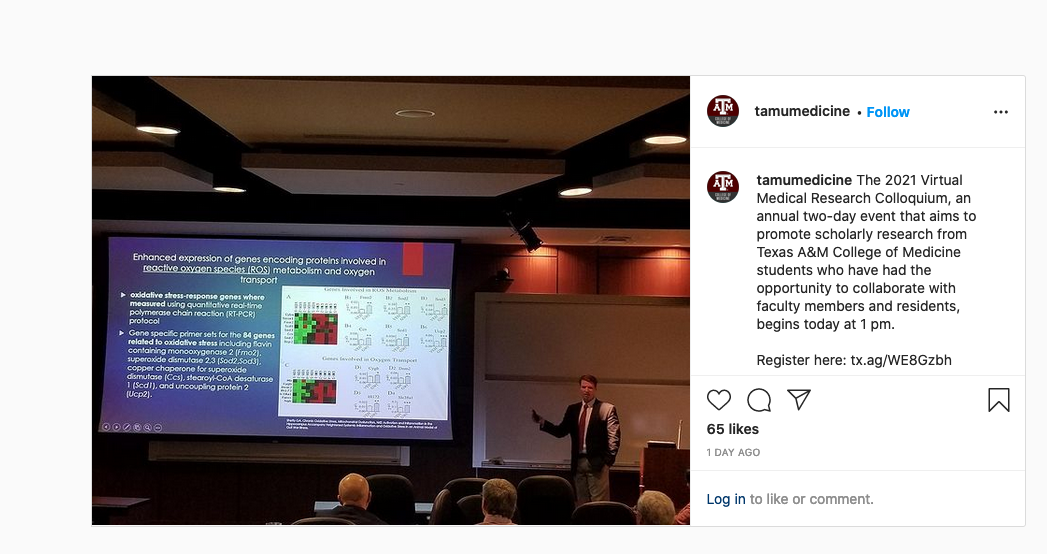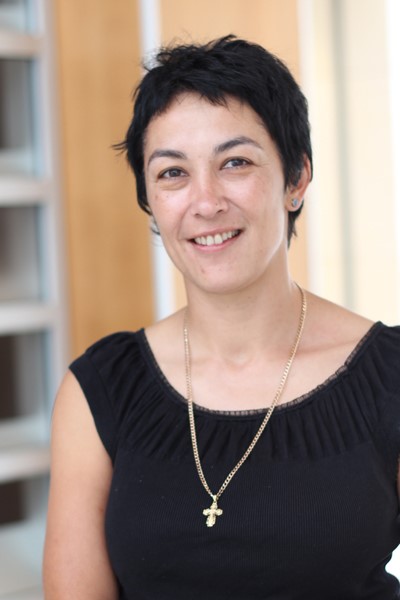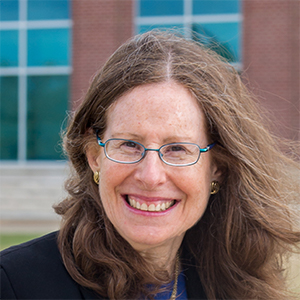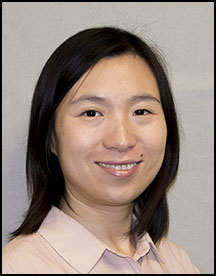Medical Scholar Research Pathway Program
About Medical Scholar Research Pathway Program
The treatment of health problems increasingly requires interdisciplinary professional collaboration. Medical students, through working in research projects with professionals in other fields acquire professional experiences and skills that prepare them for personalized health care outcomes.
The Medical Scholar Research Pathway (MSRP) is a voluntary program designed to provide students in good academic standing the opportunity to participate in cutting-edge research under the mentorship of faculty members from Texas A&M Health and Texas A&M University, and clinicians from Houston Methodist, CHI St. Joseph Health, Baylor Scott & White Health and other HSC affiliated hospitals and clinics.
Program Goals
The goal of the MSRP program is to enhance a student’s education beyond the classroom while providing them the opportunity to develop their research skills and learn to communicate effectively. Our purpose is to promote professional communication between medical students and researchers to use new technologies to transform health care and help research groups develop individualized patient treatments.
Program Overview
Our MSRP program is designed for medical students on the traditional 4-year track with the primary goal to expose them to hands-on scholarly research and promote medical scholar research engagement. Through participation in broad topic areas, from biomedical to medical humanities projects, students learn to integrate inquiry and discovery and develop analytical and reasoning skills that are critical to develop best practices in prevention, diagnosis, and treatment of disease in the 21 st century.
Each pathway may be completed independently or sequentially depending on the student’s research interest and the scope of a research project.
Interested In Joining MSRPP?
MSRPP orientation guide (PDF)
Frequently Asked Questions?
MSRPP FAQ (PDF)
MSRPP Scholarly Research Pathways
Medical students will work in collaboration with their research mentors to design a research proposal. Three pathways are available for students that are in good academic standing: (1) Medical Scholar Explorer, (2) Medical Scholar Researcher and (3) Distinguished Medical Scholar Researcher.
To formally apply to the Medical Scholar Research Pathway Program, medical students begin by following the application process and finally submitting their pathway forms to MED-OMSRE@tamu.edu (to retrieve forms, see links below).
Pathways may be completed sequentially or not depending on a student’s career goals. Individualized elective courses and appropriate learning resources will be recommended during the phase 2 of the MSRPP application process.
(1) Medical Scholar Explorer (MSE Application) (Team MSE)
The MSE pathway is a non-credit scholarly research opportunity designed to expose and engage pre-clerkship medical students in scholarly research projects under the guidance of a faculty research mentor. This pathway allows project submissions of individual (MSE) or small group (team MSE) composed of no more than 2 students.
The MSE pathway timeline can either be planned as block MSE (MSEB) scheduled between required courses or as a longitudinal MSE (MSEL) spanning 1 to 3 semesters. Students starting research during their clerkship years may also apply to a MSEL pathway program during a leave of absence (LOA) during their third year, provided that they are in good academic standing.
(2) Medical Scholar Researcher (MSR Application)
The MSR pathway is a credit scholarly research opportunity designed for medical students who wish to conduct a research project during their second semester of their second, third, or fourth year of medical school. Once a research mentor has been secured, scholarly research is scheduled as sequential or separate elective blocks, or as longitudinal research, up to 8 weeks per academic year.
The MSR pathway is recommended for medical students with prior research experience that prefer to participate in research after taking their USLME Step 1 or Step 2 exams.
(3) Distinguished Medical Scholar Researcher (DMSR Application)
The DMSR is a non-credit research opportunity that provides students with hands-on experience in interdisciplinary fields to leverage and enhance a medical student’s career plan for residency and beyond. The DMSR pathway prepares students, with a track record of documented prior research experience or/and peer-review publications, wishing to apply for competitive research awards during their M3 year.
Full-time scholarly research projects may be awarded throughout a semester, 1 year or up to 2 years depending on your selected research fellowship. Students interested in pursuing a DMSR pathway should notify our Office of Medical Student Research Education by September 1st of their M3 year by email (MED-OMSRE@tamu.edu), to begin planning and preparing their application.
Once a student has been notified that his/her fellowship has been awarded, you will request a gap year from your Texas A&M medical degree. Note that your gap year request must be approved by the Office of Student Affairs, prior to completing and submitting your MSRPP DMSR application.
Areas of Research
Our medical student research pathway program offers students 9 different areas of scholarly research:
Basic science research is a laboratory-based discovery platform to provide probable disease mechanisms that are supported by observable data.
Bioengineering includes medical device design which involves the development of life-improving technologies that lead to better health care outcomes.

Clinical research studies human tissues to find better ways to detect, diagnose, treat and prevent disease.
Maheswari Ekambaram, MD, FAAP
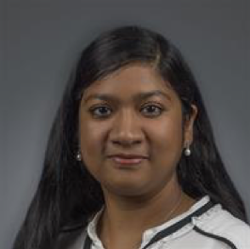
Pediatric Hospitalist
Adjunct Assistant Professor, Co-clerkship Coordinator, Texas A&M University
Baylor Scott & White Medical Center - Round Rock, TX
Maheswari.E@gmail.com
# Clinical Research, Pediatric Infectious Diseases, Newborn Care
Impact of Biofire CSF Meningitis/Encephalitis Panel on the Care of Febrile Infants 0-90 days of age. About 10% of young infants with fever have a serious bacterial infection. Although the incidence of meningitis is less than 1%, the morbidity and mortality from illness is substantial. Many febrile young infants undergo evaluation for meningitis with a lumbar puncture and cerebrospinal fluid (CSF) analysis. Biofire CSF Meningitis/Encephalitis panel is a polymerase chain reaction (PCR) test on CSF with capacity to identify 14 of the most common bacterial, viral, and fungal pathogens causing meningitis. The aim of this project is to identify the impact of this test on the clinical management of febrile young infants with primary outcomes being duration of antimicrobial and antiviral use and length of stay. This is an ongoing project and the student will be involved in data collection, performing chart reviews and database management. The student will have the opportunity to perform preliminary data analysis. At the end of this project, the student will be expected to complete an abstract and submit to local conference.
Yield of Blood Culture in Well Appearing Newborns Exposed to Maternal Chorioamnionitis. Infants born to mothers with chorioamnionitis bacterial infections are at higher risk of developing newborn sepsis. Traditionally, all babies exposed to maternal chorioamnionitis were evaluated for sepsis with a blood culture and were empirically treated with antibiotics until cultures were negative. Recently, robust research studies have made it possible to risk stratify newborns and safely avoid antibiotics in low risk infants. However, in many centers, infants exposed to maternal chorioamnionitis still undergo blood culture testing. The aim of this project is the identify the yield of blood culture in such low-risk infants and explore the possibility of safely observing them without laboratory testing. This is a new project and the student will be involved in literature review, formulating focused research questions, developing a research plan and a research database. At the end of this project, the student will be expected to assist the PI in completing a research protocol for Institutional Review Board (IRB) submission consideration.
Gabriel Neal MD, MA, FAAFP
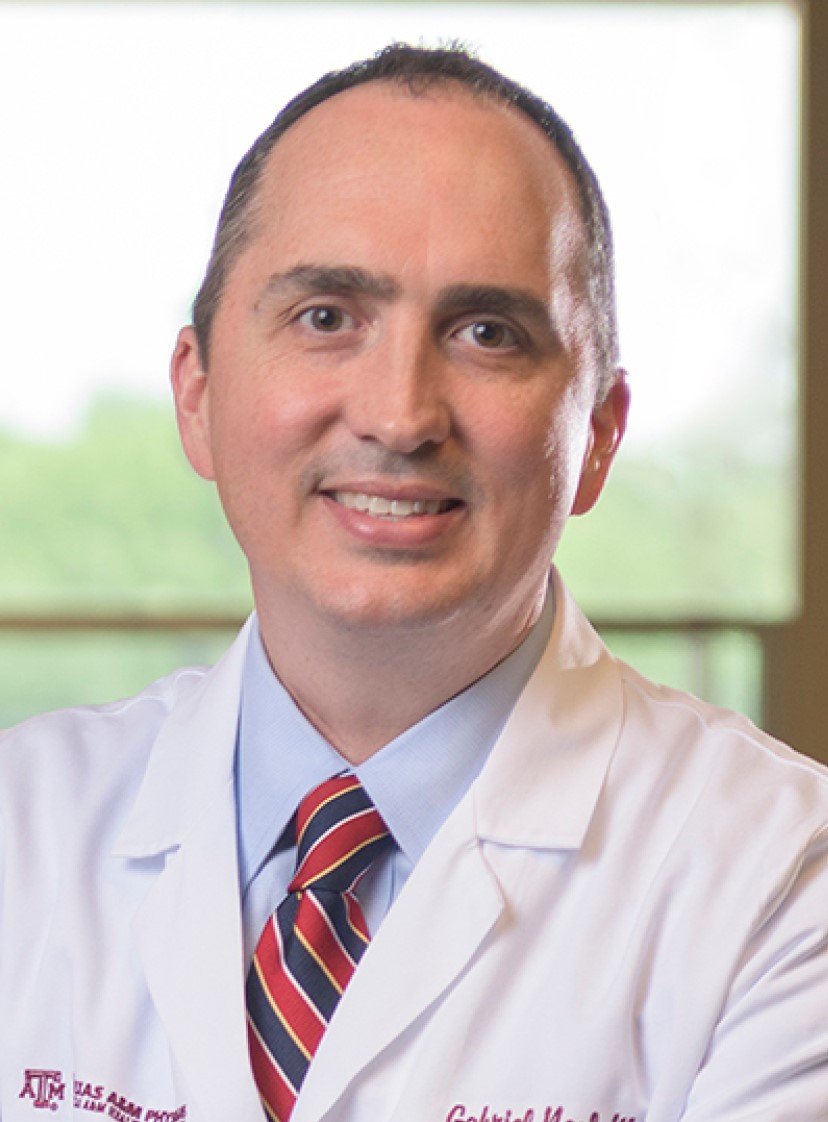
Available Medical Education Research Projects for TAMU MSRPP Medical Students
Clinical Associate Professor, Department of Primary Care and Population Health Texas A&M College of Medicine
gneal@tamu.edu
#precepting, physician productivity
The Effect of a Medical Student on Preceptor Productivity In 2019, St Joseph Hospital in Bryan, Texas began collecting productivity data on about a dozen family medicine and pediatric physicians who precepted TAMU College of Medicine students, comparing the number of patients seen in a half-day with and without a student. After several months of collecting data, the findings were presented to St Joseph and TAMU COM leadership. A prima facie analysis by the St Joseph administration showed no significant effect of precepting on preceptor productivity. However, the data also suggested that having a student who helped document in the chart could potentially increase the productivity of the physician. Because collecting the productivity data was labor intensive for St Joseph staff, it was discontinued. While collaboration between medical schools and private health systems is increasing, the “cost” of precepting is unclear due to a lack of published data, and a source of debate between entities. The value of data to the national discussion of medical student contribution to clinical productivity is high. Project Plan: With the encouragement of both St Joseph and TAMU COM leadership, we are seeking to publish the productivity data as a case report in academic or business medical journals. We have obtained the raw data from St Joseph. With IRB approval, we will also survey the precepting physicians for their perspective of the effect of precepting on their productivity. Scope of Medical Student Involvement: We are seeking for a student to help us arrange and analyze the productivity data in a rigorous manner. The Office of Evaluation and Assessment (Dr. Danielle Dickey/Dr. Teresa Isbell) will provide limited support to the project and guide the student to organize the data in a meaningful way and will welcome the student’s input. Dr. Gabriel Neal will guide the student through a literature review of publications regarding medical student effect on physician productivity. They will collaboratively produce a summary of the findings. Dr. Neal will also instruct the student on 2 the process for IRB approval and involve them in that process as opportunity arises. The student will have the opportunity to collaborate on the outline and drafting of the publication and engage in the process of publication submission. The medical student who contributes to this project will be listed as an author in publications that arise from the work. We expect this project to require at least 80 hours of time, although the student is welcome to participate beyond this at their discretion. Furthermore, the student may have the opportunity for further participation/collaboration if this project is extended or expanded by St Joseph and TAMU.
Medical education develops best practices in curriculum development, methods of instruction and course assessment tools.
Medical humanities examine the humanistic dimensions of medicine focusing in the history of medicine, bioethics, end-of-life choices and genetic counseling.
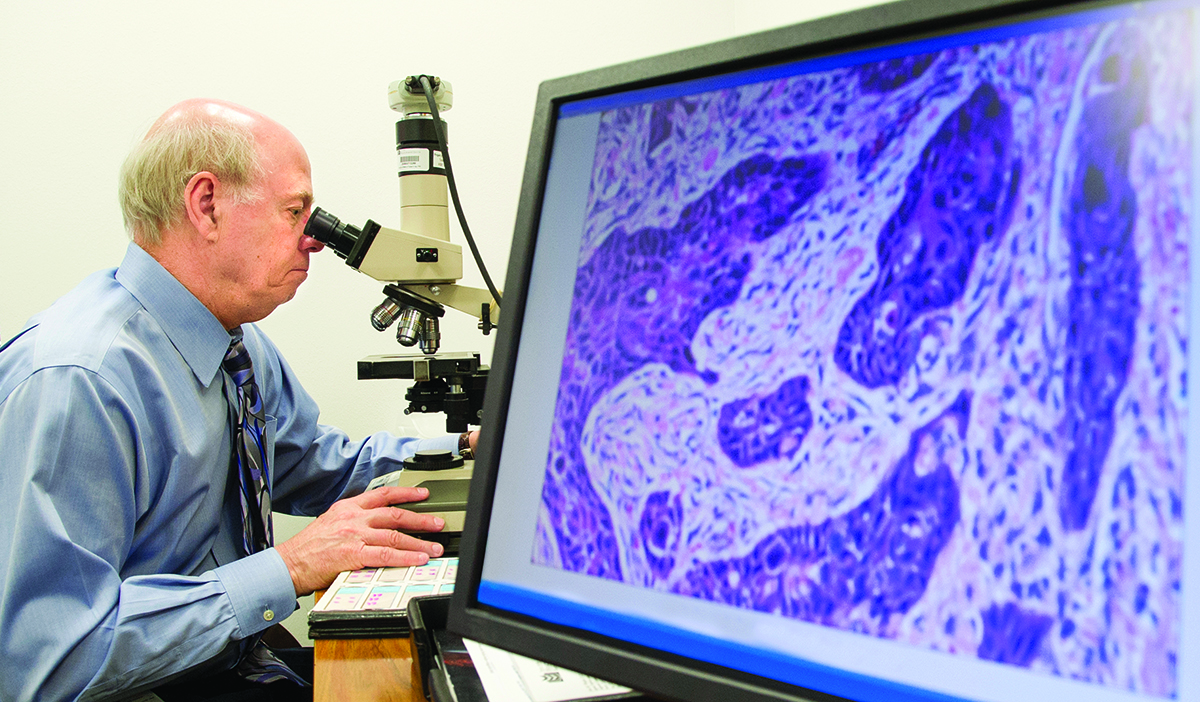
Medical journalism communicates medical information to various audiences, including health professionals and the public, through various media. Subject matter includes medical science; innovations in medical diagnosis and treatment; social, ethical, and economic aspects of medicine; and more.
Public health studies healthcare interventions to reduce health disparities in healthcare delivery primarily in rural, military and veteran populations.

Translational research uses laboratory peer-reviewed published data to develop new strategies to diagnose, manage and treat disease.
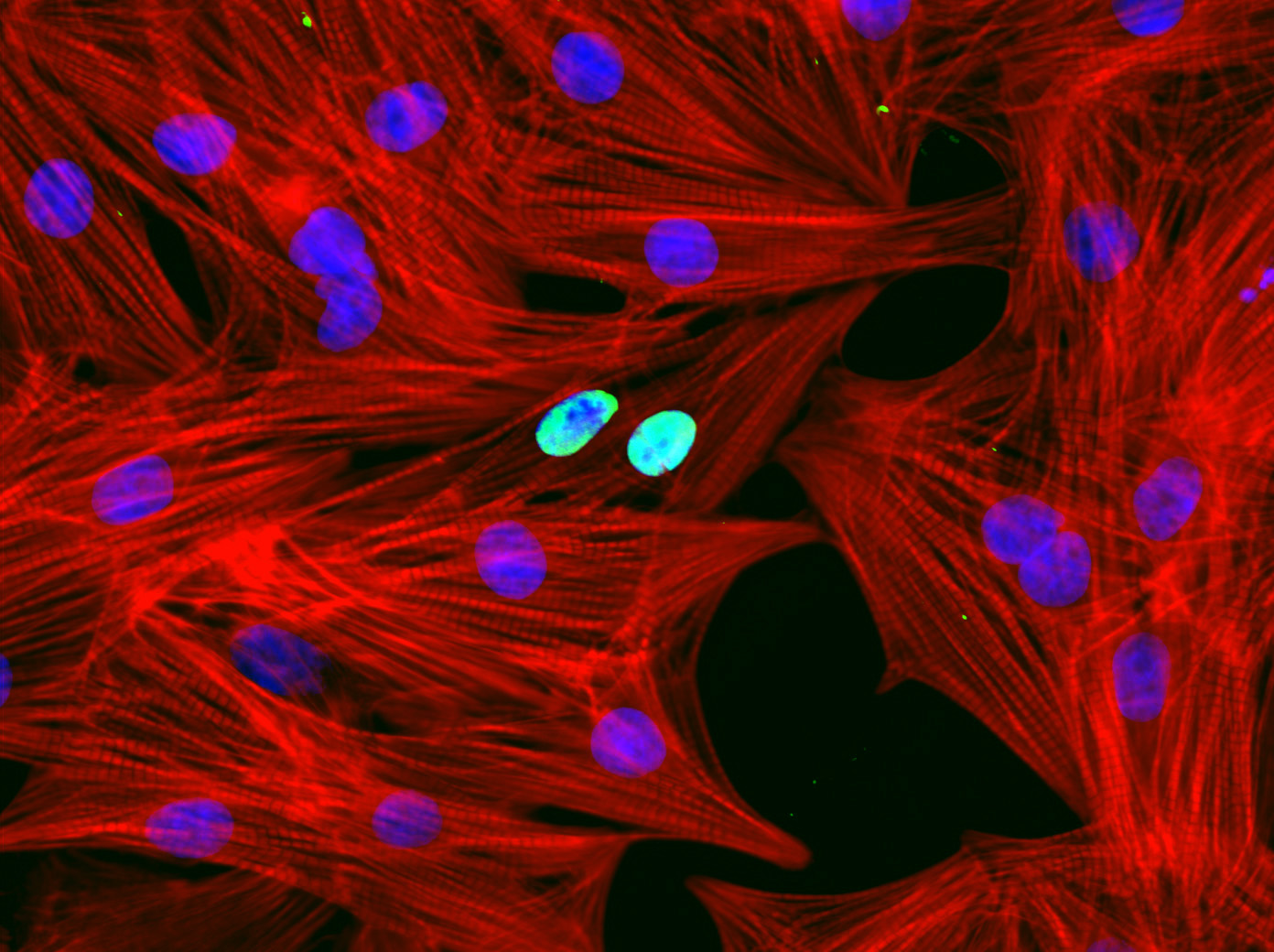
Steps to Set-up your MSRPP Research Pathway
What do I gain when I join MSRPP?
- One-on-one coaching meetings with the Director to strategically plan your research mentor selection process.
- Students will identify a research mentor and select a pathway to pursue during medical school.
Medical students and mentors will work collaboratively to design or expand a research project that is in line with both of their professional goals.
The maximum number of non-patient elective credit hours allowed 8 weeks/year.
At the end of the MSRPP, students must fill out an assessment survey and present their research as an invited launch talk to the entire TAMU-COM community.
When during medical school should I participate in MSRPP?
You may engage in scholarly research activities at any time during your medical school. Plan to submit your MSRPP forms 1 month prior to set start date.
Here are some points to consider:
M1. M1 students may wish to set aside protected research time during their first semester and begin a longitudinal Medical Scholar Explorer (MSE). However, most students prefer to begin during the summer after completing the second semester.
M2. After completing your USMLE Step 1 exam, M2 students may decide to use elective courses to dedicate to research as a Medical Scholar Researcher (MSR). We offer several block or longitudinal electives, listed here.
M3. Students wishing to continue or initiate scholarly research activities will choose either to participate in a MSE or MSR pathway. If you choose to do research for credit as a MSR, plan to use elective and/or career exploration blocks. Register your chosen elective in OASIS working with your navigator and complete your MSR form.
M4. Students wanting to continue medical research will use scheduled elective time by registering their elective in OASIS working with their navigator and completing the MSR application process.
How do I join MSRPP?
Planning your MSRPP varies in length, depending on a student’s prior research experience and current research goals. If you are undecided or new to the research process, we suggest you set aside between 6 weeks or up to 2 months for planning your pathway. More experienced students can expect a faster time table.
There are two major pathways to consider: non-credit Medical Scholar Explorer (MSE) and research for credit through Medical Scholar Researcher (MSR) pathway.
If a student wants to pursue research for credit they should plan to apply to MSR. Students must choose a research elective that fits with their schedule and work with their campus navigators to register in OASIS. After your elective is registered, contact Dr. Nigli for assistance or questions.
Phase 1
- Contact the MSRPP program coordinator (nigli@tamu.edu) to set up your phase 1 meeting with Dr. Conover.
- 1 week prior to your first meeting, send your updated CV and the Entry MSRPP Form to the MSRPP program coordinator (nigli@tamu.edu).
Phase 2
- Our Office will facilitate the match of students with faculty research mentors.
- Students will complete the appropriate paperwork and submit it for admission to our Office of Medical Research Education (MED-OMSRE@tamu.edu)
Phase 3
- Give your MSRPP launch talk to COM community.
- Complete and submit the MSRPP assessment survey.
Research Outcomes and Deliverables
The Office of Medical Student Research strongly encourages medical student participation at Texas A&M University College of Medicine, Annual Medical Research Day Colloquium. Scholarly activity is demonstrated by:
- Poster presentations at local, regional or national meetings.
- Oral presentation of a research project at a professional meeting, symposia or conference.
- Oral presentation of clinical case reports in clinical grand rounds during clerkship rotations.
- Authorship of textbook chapters, meta-analysis literature reviews or other journal articles review articles.
- Authorship of health quality improvement studies and case-control cohort population studies.
- Authorship of peer-reviewed articles in scientific and/or medical journals.
MSRPP Faculty Mentors
Medical students in the Medical Scholar Research Pathway Program (MSRPP) select faculty mentors to facilitate and guide their desired MSRPP pathway (MSE, MSR and/or DMSR). MSRPP students are expected to contribute to the progress of their mentor’s research study and are expected to give an oral presentation at the end of their pathway.
Medical students will choose their faculty primary mentor among Texas A&M faculty, affiliated clinical physicians, and other health science professionals to plan, collect data, write, interpret and disseminate academic research products. By participating in their projects, MSRPP medical students learn from first-hand experience the research procedures that lead to high impact scholarly research deliverables.
In some cases, medical students feel strongly and can justify, that their envisioned research project would benefit from other faculty mentors that are not listed below. Students can submit their mentor name for consideration by filing a request to MED-OMSRE@tamu.edu.
For more details, on projects specially designed for medical student researchers, please visit the Areas of Research page.
Faculty or Clinicians that are interested in becoming TAMU MSRPP Mentors are invited to reach out to our Program Director, Dr. Conover, to learn more about our Program goals and application process.
Affiliate Clinical Faculty
- Kwame Ofori Affram, MD PhD
- Hector Chapa, MD
- Arpitha Chiruvolu, MD
- Maheswari Ekambarar, MD
- Anthony Hackett, DO
- Bartool Kirmani, MD
- Drew Thodeson, MD
Institute of Bioscience and Technology
Medical Education
Medical Humanities
Medical Physiology
- Sanjukta Chakraborty, PhD
- Shannon S. Glaser, PhD
- Mariappan Muthuchamy, PhD
- Ian V. Murray,PhD
- Joseph M. Rutkowski, PhD
- Carl Tong, MD, PhD, FACC
- David Zawieja, PhD
Molecular and Cellular Medicine
Microbial Pathogenesis and Immunology
Neuroscience and Experimental Therapeutics
- Cédric G. Geoffroy, PhD
- Michelle Hook, PhD
- Rajesh C. Miranda, PhD
- Samba Reddy, PhD, RPhD
- Lee Shapiro, PhD
- Farida Sohrabji, PhD
- Rahul Srinivasan, PhD
Nursing
Primary Care and Population Health
Primary Care and Rural Health
- Nicolaas EP Deutz, M.D. Ph.D
Psychiatry
Pharmacy
TAMU AgriLife Extension Service
- Mark D. Faries, PhD
- Jacob S. Szeszulski
Texas A&M School of Medicine Research Electives
It is strongly encouraged that medical students set-up face-to-face appointments with the Director of the Office of Medical Student Research at least 2- 3 months in advance to plan their tailored MSRPP pathway by emailing nigli@tamu.edu (Step 1).
The selected MSRPP proposal must be submitted 1 month before the research elective begins to MED-OMSRE@tamu.edu (Step 2). MSRPP members that wish to receive elective credit must register through OASIS (online access to student information and scheduling) (Step 3 and 4). Their elective evaluation surveys must be completed 1 week before the end of their elective course (Step 5).
Action Plan:
Step 1: Select a pathway, research topic and mentor.
Step 2: Submits the MSRPP forms (MSR or DMSR pathways)
Step 3: Consult with the Office of Medical Student Research to select appropriate electives that best fits with their research project.
Step 4: Register for course using OASIS
Step 5: Complete elective evaluation form
Credit Hour Allocations
Elective credit will be determined on a case-by-case basis depending on the time a student dedicates to a research project. Students must submit their MSRPP proposal (Step 2) and indicate their hourly weekly commitment timeline prior to starting their research elective. Medical students in the traditional 4-year track may participate in scholarly research for a total of 8 weeks per academic year. Protected research time, using elective blocks, must not exceed a total of 24 weeks during their entire 4 years in medical school.
Credit hour allocation for a total of 40 hours (1 week) of contact time over a semester is required to receive 1.25 credits hours in elective courses. Students should work with the Office of Medical Student Research and Academic Navigators to ensure proper planning and academic procedures are met.
Zero-credit Elective
MEID 623.RE Pre-clerkship Research (Any campus, only available for rising M2)
List of Research Electives
Longitudinal scholarly research elective:
- Medical Humanities
MHUM-823.B Medical Scholarly Research (Bryan)
- Interdisciplinary Medical Education
MEID 691 Research (All campuses)
Elective blocks:
- Neurology under interdisciplinary medical education
IMED 954.B Neurology
- Medical Humanities
MHUM-821.D Research Practicum (Dallas)
MHUM-822.D Introduction to Research (Dallas)
- Interdisciplinary Medical Education
MEID-985.RE Student Initiated Elective- Research (Any campus)
MEID-999.RE Student Initiated Elective- Research (Bryan)
MEID 820 Case Study: Fundamental Science Mechanisms Explaining Clinical Profiles (Any campus)
- Internal Medicine:
IMED-842.H Immunology Research Mechanisms of Inflammation (Houston)
- Radiology:
MRAD-806.T Clinical Research Design and Application (Temple)
- Surgery:
Surgery–864.D Minimally Invasive Surgical Research (Dallas)
- Service-Learning Internal Medicine and Pharmacy Interdisciplinary Health Research
Medical Student Research Representatives
The TAMSA Executive committee approved a new class officer position, the Medical Student Research Representative, in Spring 2019. There will be one student elected per class, and the representative will serve a 1-year term. The goals of the medical research representative are:
- Poll the class to get a list of physician-scientists to share the impact research had on their medical practice during a Research Day keynote talk.
- Organize round table conversations to discuss emerging medical research.
- Promote the medical researcher travel award in order to motivate students to present their research at national or international medical conferences.
- Provide an annual research report about student’s suggestions for growth to the Office of Medical Student Research.
If you are passionate and curious about research, we strongly encourage you to consider running for this position!
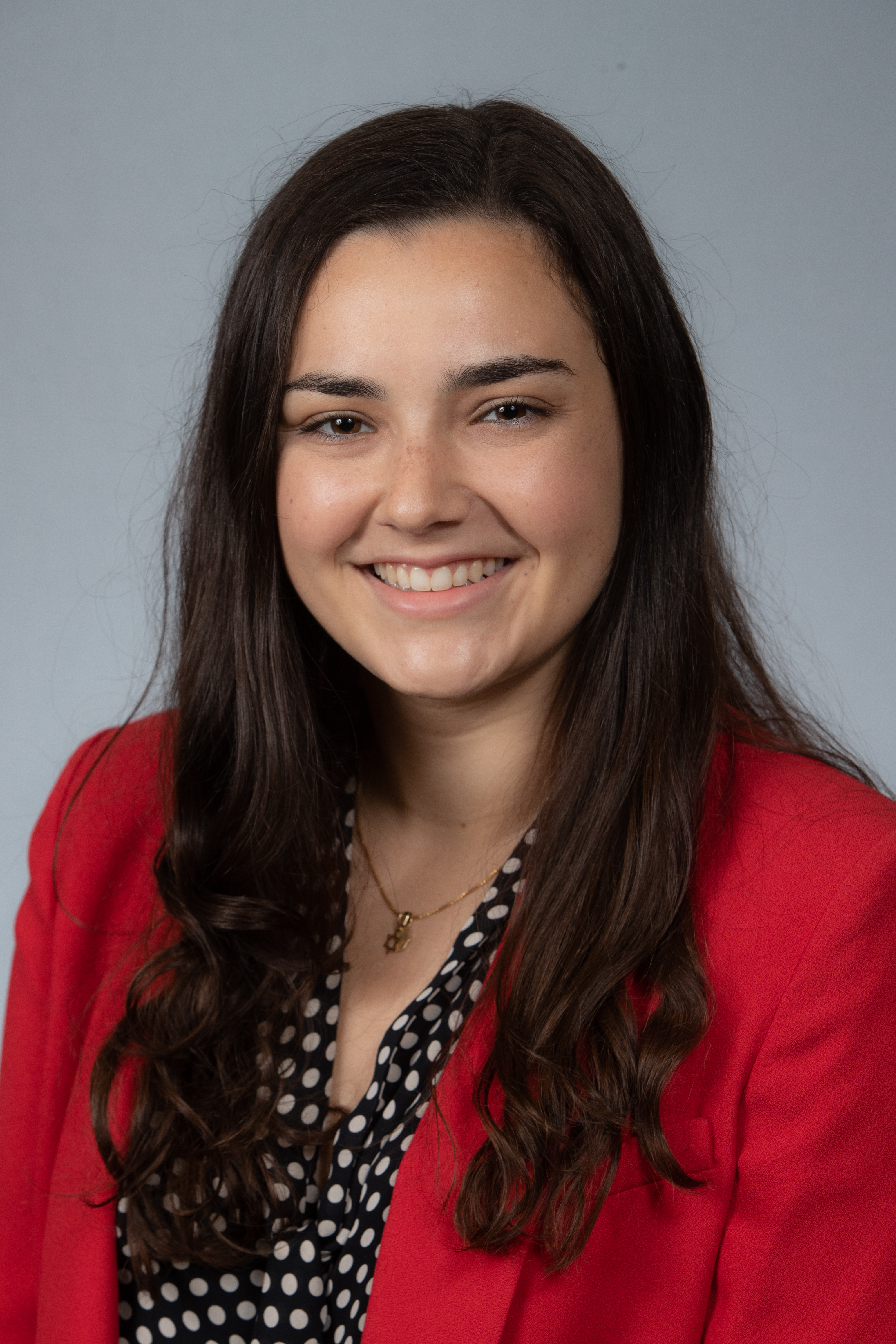 |
Talia Meidan, Class of 2026 Talia Meidan graduated from Northwestern University in the spring of 2020 with a B.S. in Human Development and Psychological Services. During undergrad, she worked at UT Southwestern in cancer prevention research investigating the genetic penetrance of inherited cancers. After graduating, she worked as a Clinical Research Associate for 2 years at The Heart Hospital Baylor Plano (THHBP) performing retrospective and prospective analyses of cardiovascular interventions. |
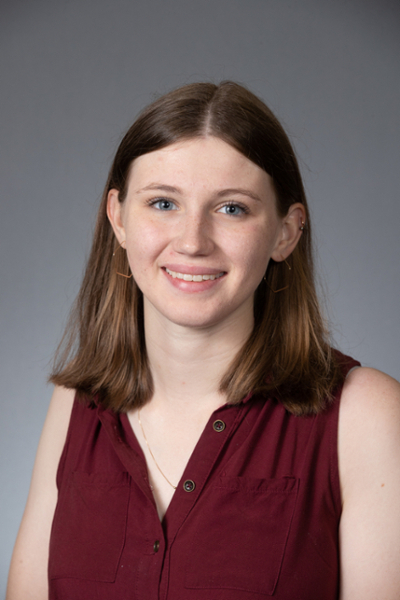 |
Anna Pinson, Class of 2025 Anna Pinson graduated from Harding University in spring 2021 with a B.S. in biochemistry and a B.A. Spanish. During her summers of undergrad, she participated in the INBRE summer research program at the University of Arkansas for Medical Sciences and researched the metabolism and enzyme kinetics surrounding synthetic cannabinoids. Her current research interests lie in the fields of toxicology and immunology. Anna matriculated into Texas A&M as an M.D./Ph.D. student and is incredibly invested in joining the worlds of research and patient interaction in her future career. This desire led her to apply for the research representative position. Her main motive in this office is to inspire her fellow classmates to enjoy and see the value in research alongside a career in medicine. In this office, her goals include connecting students with researchers in their respective campus designations, creating a newsletter to keep students informed on new advances in medical research, and design a series of researcher talks from physicians who bridge the worlds of patient care and clinical research. |
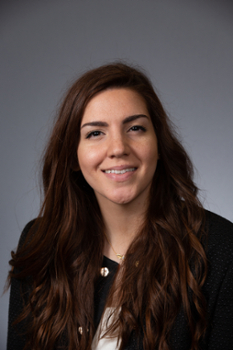 |
Nicole Mehta, PhD Class of 2024 Nicole Mehta graduated from the University of Oregon with a B.S. in Biology in 2013, and from Texas A&M University with a M.S. in Biomedical Sciences in 2015, and a Ph.D. in Biomedical Sciences in 2019. While an undergrad under Dr. Clifford Kentro, she researched hippocampal pyramidal cells. At Texas A&M, under Dr. Fred J Clubb Jr. in the Cardiovascular Pathology Laboratory she assisted with the analysis of preclinical cardiovascular medical device studies (GLP) and post market surveillance of already approved cardiovascular medical devices. Her Ph.D. research focused on cardiovascular regenerative medicine, specifically encouragement of neovascular growth within decelullularized (acellular) cardiac tissue scaffolds. As a Postdoctoral Research Associate, under Dr. Michael Golding she researched the paternal contributions to Fetal Alcohol Syndrome, and Fetal Alcohol Spectrum Disorders (FAS/FASDs), with an emphasis on the paternal contribution to congenital cardiovascular defects. Using her experience, she hopes to help inspire her fellow classmates to become involved with research from the beginning, and show that research is not an intimidating, but a rewarding experience. Her goals are to first, establish a research folder in a shared class drive so that students may share protocols and resources, as well as encourage collaboration. Second, work to increase the funding available for conference presentations so that more students can attend and practice valuable skills such as public speaking and networking. Third, make a detailed resource for students that explicitly states how many publications/presentations/abstracts/case reports each specialty typically expects, so more clarity on research expectations can be given. |
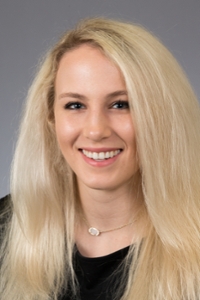 |
Jordan Han Class of 2023 Jordan Han graduated from the University of South Florida with a B.S. in Biology in 2016, and the University of North Texas Health Science Center with a Master’s in Biomedical Science. While an undergraduate she participated in the REU-USFSM research partnership program between the University of South Florida Sarasota-Manatee and Mote Marine Laboratory focusing on the field of genomics. As a medical student as a Medical Research Explorer under the MSRPP she participated in neuroscience research focused on the effect of sex hormone deprivation in postmenopausal rats and differences in stroke outcomes. As a Medical Student Research Representative, her goals include facilitating research opportunities for her classmates to help them reach their career goals and working with mentors to include opportunities for remote research work in light of the COVID-19 pandemic where feasible. Feel free to contact Jordan about both general research opportunities and MSRPP-specific questions or concerns. |
Former Student Research Officer
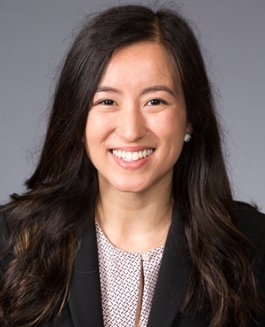 |
Tiffany Holland Class of 2022,
Her research centered on epidemiological research of reproductive health and fertility under the mentorship of Dr. Enrique Schisterman. During her first year as a Medical Student Research Representative, Tiffany organized an upperclassman research panel to inform M2s of how to get involved in research during their clerkship years. Additionally, she put together a newsletter on how to be involved in research and on how to write a case report. As an M3, Tiffany became a member of the Medical Student Research Advisory Committee (MSRAC), representing the research needs of her class at quarterly meetings with cross-campus faculty investigators. Lastly, Tiffany is currently working on organizing an inaugural M4 research conference to give her classmates additional research presentation experience before graduation. |
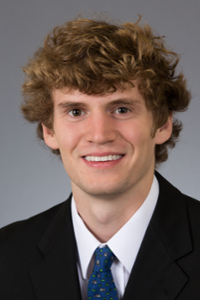 |
Jared Eichner Class of 2023 Jared Eichner graduated from Texas A&M University with a B.S. in Biomedical Sciences, a Certificate in Biomedical Research and Development, and Undergraduate Research Scholar distinction. Beginning Spring semester of his first undergraduate year, Jared participated in research in Dr. David Threadgill’s lab that involved analysis of epidermal growth factor receptor inhibition in a murine study. Jared’s Undergraduate Research Scholar thesis was accepted in May 2018, and he participated in team poster presentations in 2016-2018. Jared served as a 2018-2019 Texas A&M University Undergraduate Research Ambassador, a university-wide program that encourages broader engagement in undergraduate research. By facilitating the flow of information among research stakeholders, Jared looks forward to supporting the efforts of Class of 2023 medical students to improve healthcare through inquiry-based research efforts. |
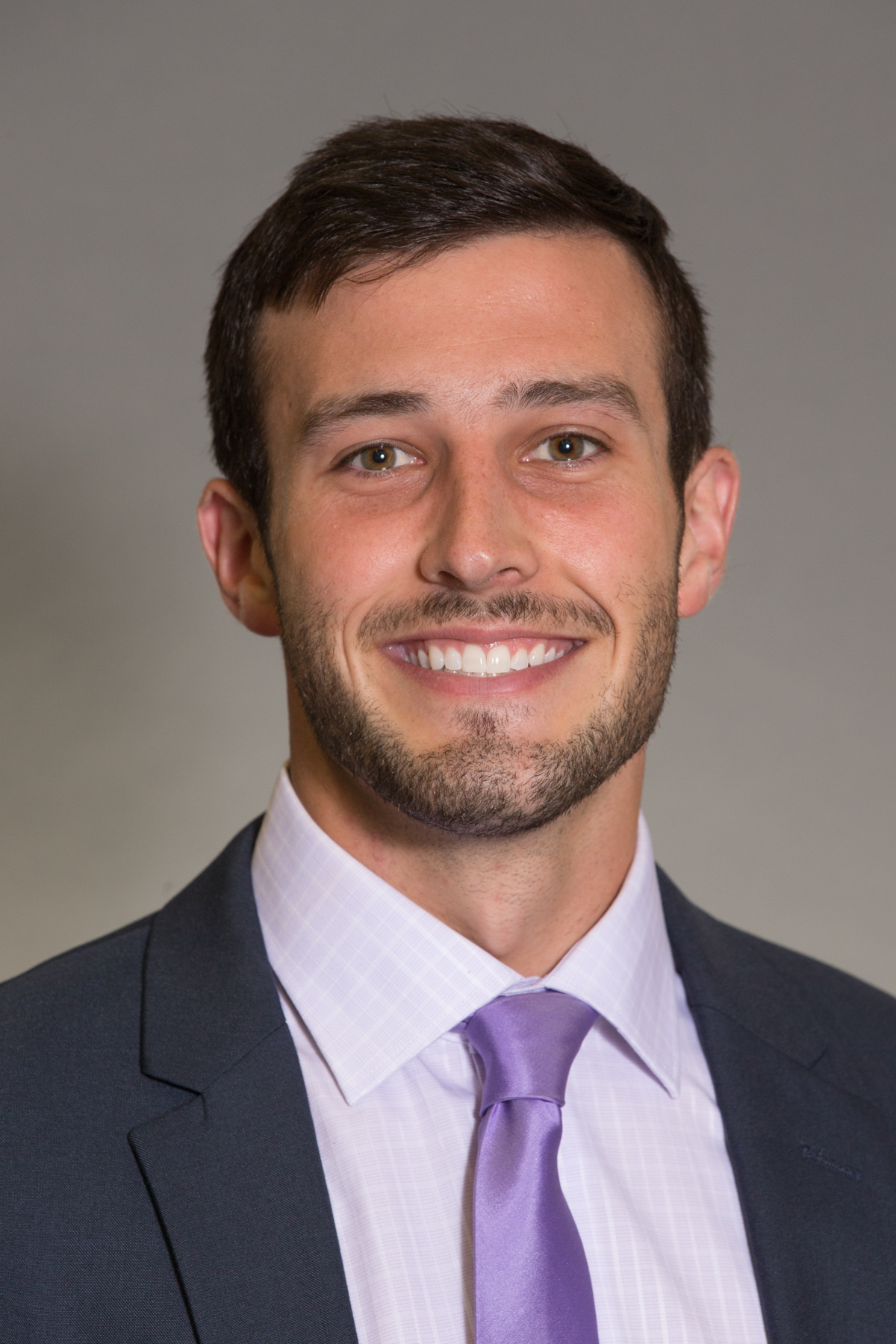 |
Caleb Gottlich Class of 2020 Caleb Gottlich graduated from Texas A&M University with a B.S. in Nutritional Sciences and Biomedical Sciences and a minor in Neuroscience in 2014. As an undergraduate he participated in research in a multiple sclerosis study and as a Master student in Biomedical Sciences in 2015 he completed a master Thesis in neuroimmunology related to epilepsy. During his pre-clerkship years in medical school he was inspired by Medical Grand Rounds case reports to seek research opportunities because he realized the great potential research had in patient health care outcomes. Caleb wishes to pursue a career as an academic surgeon in orthopedic oncology or pediatric orthopedics. He recently completed a year off as a clinical research fellow at Johns Hopkins University in Baltimore, under the guidance of world-renowned physicians, a clinical research project on pediatric orthopedic surgery. He hopes to use his position as Medical Student Research Representative for the class 2020 to inspire and encourage medical students to get involved with scholarly research and broaden Texas A&M's footprint in the national research community |
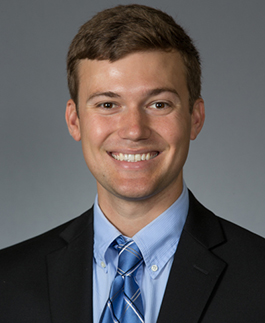 |
Alec Thoveson Class of 2021 Alec Thoveson graduated from Texas A&M University with a B.S. in Biology in 2015. After graduating he accepted a role as a Clinical Research Coordinator at Texas Scottish Rite Hospital for Children, where he served as the lead coordinator for Adolescent Idiopathic Scoliosis and Scheuermann’s Kyphosis clinical studies. He also collaborated with the Center of Excellence in Hip Disorders on research studying serial perfusion MRI studies in Legg-Calve-Perthes Disease. As a medical student representative, he serves as a resource for students interested in scholarly research. His goal is to help medical students connect with faculty and/or physicians research mentors, travel award opportunities, and research resources. If you would like more information on MSRPP research opportunities, please feel free to contact Alec with your questions. |
Research Funding Opportunities
Medical students interested in competitive residency programs are highly encouraged to set aside dedicated time for research (1-year / 1-semester) and participate in our MSRPP Distinguished Medical Research Scholar Program.
Find your personalized fit! We recommend you identify and apply to your selected fellowship program during your M3 year. Notify our Office of Medical Research Education 2-3 months before your fellowship deadline and get the support you need to submit a competitive application.
The fellowships listed below are tailored to highly motivated driven medical students that have a passion to work collaboratively in interprofessional teams to find research-driven solutions for novel or existing problems that underlie human disease.
Start your search here: Association of American Medical Colleges
Summer Research Programs
- The American College of Gastroenterology: The ACG medical student research award is a 6-10 week paid program supporting research in gastroenterology and hepatology during their M1, M2 or M3 years.
- Houston Methodist: The Rosenberg Summer Surgical Fellowship offers students clinical research experience in general surgery, neurosurgery, urology, plastic surgery or cardiovascular surgery.
- MD Anderson Cancer Center: the First-year medical student program offers hands-on experience in biomedical, translation or clinical research. The summer imaging research program (SIRP) provides clinical research experience on imaging modalities (CT, MRI, ultrasound and PET/CT). The cancer prevention research training program (CPRTP) is for medical students interested in doing research in cancer prevention.
- University of Texas Southwestern Medical Center: the summer research program offers medical students who pick their clinical mentors at UTSW, the possibility of applying to an enrichment research program, if they concurrently register for a student-initiated research elective at Texas A&M College of Medicine.
- Massachusetts General Hospital: the digestive disease summer research program provides opportunities for medical students interested in gastroenterology with laboratories at mucosal immunology and biology research center at the Mass General Hospital for Children. Another program is the summer research trainee program (SRTP) available for rising 1st year medical students or 1st year medical students from underrepresented minority groups that wish to pursue biomedical clinical research projects.
- Mayo Clinic: The Summer Research Fellowship prepares medical students to become clinical investigators from underrepresented groups to participate in patient-oriented research projects. This program is funded through grants from the National Heart, Lung and Blood Institutes and the Mayo Clinic.
- Medical Student Training in Aging Research Program: the MSTAR scholarships supported by the National Institute on Aging focuses on geriatric medicine clinical research projects on health promotion, prevention, diagnosis and treatment of diseases and disability in elderly people.
- Harvard-Longwood Short-Term Research Training in Vascular Surgery (NIH-T35) at Beth Israel Hospital. The vascular surgery fellowship are available for a maximum of 12 weeks or a minimum of 8 weeks and provides state-of-the-art training in molecular, cell biology, biomechanics, coagulation thrombosis, angiogenesis with a clinical focus on atherogenesis, intimal hyperplasia, prosthetic host interactions and thrombosis.
- Johns Hopkins Medicine: offers scholarly research programs in orthopedics, Silberstein Pediatric Orthopaedics Research Fellowship and sports medicine, Women’s Sports Medicine Program.
- American Society of Hematology Minority Medical Student Award Program: MMSAP encourages underrepresented minority medical students to conduct a scholarly research projects in hematology and receive valuable mentorship from a career-development mentor.
- James A. Ferguson Emerging Infectious Diseases: offers the research initiative for student enhancement (RISE) fellowship program to support summer research program focusing on infectious diseases, public health, mental health, maternal and child health or health disparities.
- Medical Student Summer Research Fellowship: A summer fellowship for research projects of neurosurgical studies funded by the Neurosurgery Research & Education Foundation. For more details see request for application (RFA).
One-year + Research Programs
- National Institutes of Health: the Medical Research Scholars Program offers state-of-the-art research opportunities for clinician scientists, see the profiles of the 2019 Another NIH program is the Global Health Program for Fellows and Scholars a mentored clinical research training experience for medical students interested in global health.
- Health Resources and Service Administration: the Health Center Program, Bureau of Primary Health Care (BPHC) offers research opportunities in Health Center Quality Improvement and Health Center Data & Reporting.
- Howard Hughes Medical Institute: the Medical Research Fellows Program is a highly competitive research opportunity for medical students interested in cutting-edge basic and translational research. Get inspired by the scholarly research of the 2018 HHMI Medical Research Fellows. Another HHMI program at the Janelia research campus is the Graduate Research Fellowship eligible for currently enrolled medical students.
- Centers for Disease Control and Prevention: offers research hands-on several CDC internship programs in occupational health, epidemiology and infectious disease.
- Robert Wood Johnson Foundation: RWJF offers multiple grant programs focused on developing evidence-based practice to build a culture of health: Clinical Scholars, Culture of Health Leaders, Health Policy Research Scholars, Evidence for Action.
- Cardiovascular Research Foundation: Sarnoff mission is to develop medical student into leaders in cardiovascular medicine through their research program.
- Leadership & Innovation Fellowship Training Program: The LIFT program at the University of California Irvine provides opportunities for medical students to participate in clinical and translational research in urology and genitourinary surgery.
- Johns Hopkins Medicine: Poggi Pediatric Orthopaedics Research Fellowship provides opportunities to participate in cutting-edge orthopaedics surgical clinical research.
Variable length research programs
- American Physician Scientist Association: The APSA offers a search engine to look for research opportunities across the US, that is specifically catered for physician-scientists.
- NIH Oxford-Cambridge Scholars Program: The NIH offers a self-driven accelerated OxCam program for experienced medical students with a passion for science through prior engagement in scholarly research, that would like to pursue research in projects related to global health.
- Fulbright-Fogarty Awards in Public Health: Research support for medical students is provided for projects in public health and clinical research in resource-limiting settings (Guatemala, Botswana, Ghana, Malawi and South Africa) by the Fogarty International Center at the National Institutes of Health. Fulbright-Fogarty Awards timeline begin following the academic calendar of the host country.
If you are aware of any errors or omissions, or you wish to suggest additional research opportunities to this list, please contact us.
Resources
Institutional Review Board
MSRPP Web narrative guidelines
Tips for Presentations
Authorship Guidelines
MSRPP Poster tips
MSRPP Scientific Literature Guidelines
MSRPP Launch Talk Tips
Clerkship research resources
TAMU IRB Basics
Clerkship EPIC Access
Scholarly Research Manual
Open Researcher and Contributor Identifier
TAMU libraries resources: https://tamu.libguides.com/orcid
Orientation video
Here you will find tips about:
- How to reset your password(org/reset-password)
- Add your academic credentials
- Add your academic employment history
- How to use the search & link wizard to add publications
Qualitative Research
MSRPP in the News
Medical Research Colloquium
Medical Student Research Program Participants Share Findings
Medical Student Present Scholarly Research at Virtual Colloquium
Vital Record Article
Senior Research Showcase
Fourth-year-medical-students-present-research-at-inaugural-showcase
MSRPP medical students on Social Media
Military Medicine: Brandon Dickey, Class 2022
Annual Virtual 2021 Medical Research Colloquium February 10 and 11
Twitter: https://twitter.com/TAMUmedicine/status/1391052837371715587?s=20Facebook: https://www.facebook.com/TAMUmedicine/photos/pcb.10161006979705968/10161006979480968/
Instagram: https://www.instagram.com/p/COnfdX0Lg5x/
